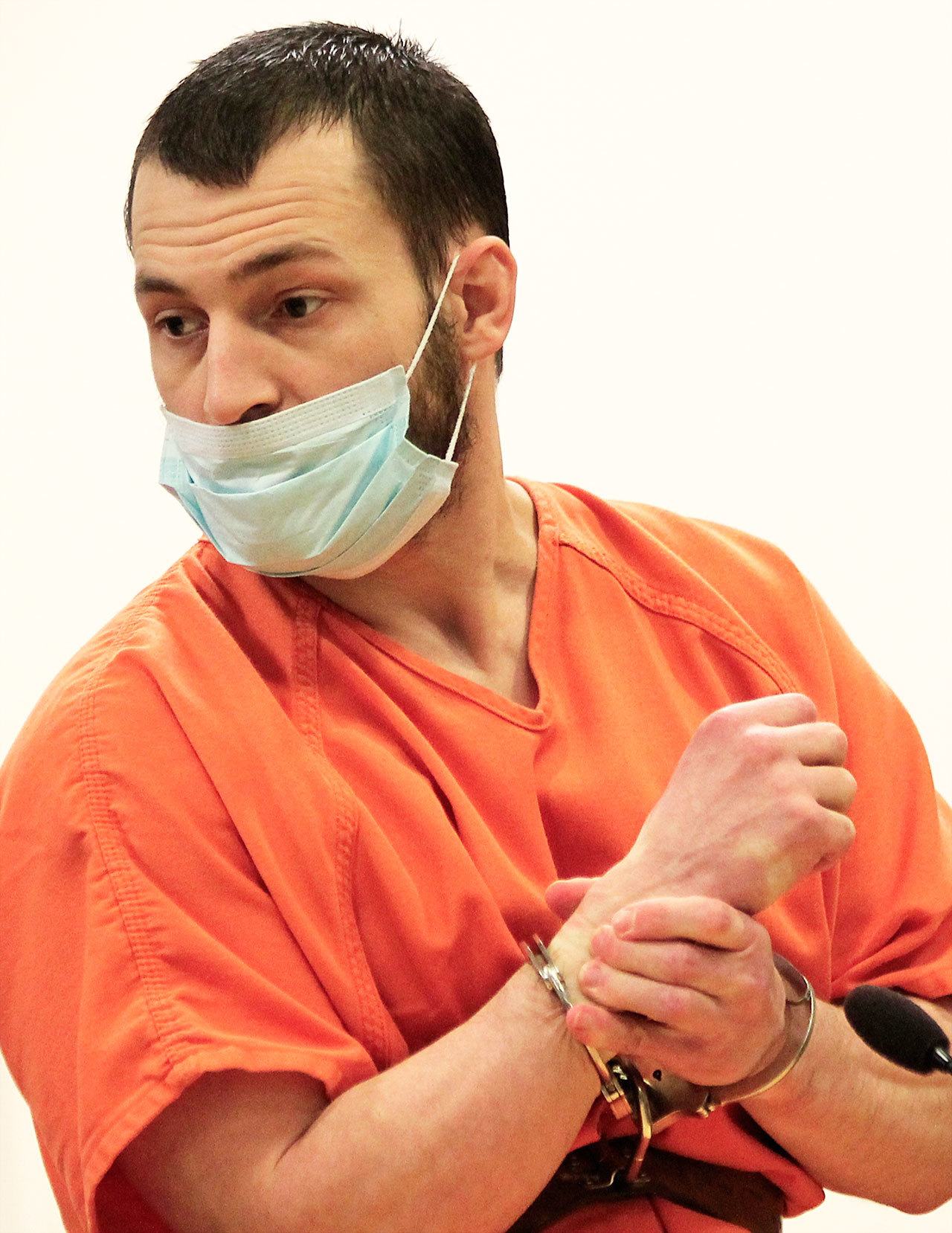Attorneys for an Oak Harbor double-murderer argued that a judge’s decision to revoke their client’s ability to represent himself in the midst of a trial violated his constitutional right.
The Washington State Court of Appeals heard arguments from the defense and prosecution Tuesday on this issue and several others as convicted murderer Joshua Lambert appeals his conviction for the Oct. 3, 2011 crimes.
Lambert, 35, was sentenced to 100 years in prison following a 2013 trial in Island County Superior Court. The jury found him guilty of eight counts, including two counts of first-degree murder, one count of kidnapping and two counts of burglary.
At two North Whidbey residences, Lambert stabbed to death his two 80-year-old grandfathers, George Lambert and August Eugene “Sonny” Eisner, and tied up his great aunt while he searched for guns to steal.
Lambert’s appellate attorneys argued a series of issues on appeal, including whether his right to self-representation was inappropriately revoked.
In briefs submitted to the court, the attorneys also asserted that there was insufficient evidence to convict Lambert of burglaries or felony murder charges predicated on the burglaries; a jury instruction omitted a vital element; convictions for first-degree murder and first-degree burglary violated double jeopardy; the court improperly refused to consider a pretrial motion for acquittal on the basis of insanity; and the prosecutor should not have been allowed to question Lambert about his research into psychiatric disorders.
In addition, Lambert submitted his own supplements appeals, arguing there was insufficient evidence that he was “legally sane” and that the court improperly denied him the right to represent himself.
His brief was unorthodox.
“Lambert is very sad about the murders. He did not want to kill them,” he wrote, referring to himself in third person. “He was forced and tricked by the voices and a government that has supernatural powers.”
Island County Prosecutor Greg Banks argued before the appeals court, defending the trial and convictions.
Banks also handled prosecution in the criminal trial. He presented evidence that Lambert was in the midst of a methamphetamine-induced hallucination and went to the two homes to procure guns.
Lambert, a high school dropout, insisted on representing himself, though the judge also appointed a standby attorney.
Lambert presented an insanity defense, arguing that he is schizophrenic and didn’t understand that what he was doing was wrong. He described a long and complicated hallucination in which he had to save his son from FBI agents who were going to kill him.
Lambert put a mental-health expert on the stand who testified that Lambert suffered from paranoid schizophrenia. Banks, on the other hand, called two experts who said Lambert wasn’t schizophrenic but was a sociopath; both experts testified that Lambert understood the nature of his acts and was able to tell right from wrong when he committed them.
The jury found Lambert guilty on all charges and found that aggravating factors existed, which allowed the judge to sentence him beyond the standard range.
Lambert had difficulty following court procedure during pretrial hearings and the trial. He had many outbursts — he accused the judge, prosecutor and witnesses of lying — and was warned repeatedly by Judge Vickie Churchill that he wouldn’t be able to continue representing himself if he didn’t behave.
On one occasion, Lambert asked Churchill if she realized it was a murder trial and on another told her she was “dumber than a box of rocks.” He had to be forcibly removed from court at least twice by corrections deputies.
Churchill finally removed Lambert as his own attorney near the end of the trial after he was argumentative and continually asked inappropriate questions of the county coroner. Standby attorney Tom Pacher took over.
In briefs to the appeals court, Lambert’s attorneys argued Churchill cited an improper basis in deciding that Lambert forfeited his right to represent himself. They quote the Madsen case, in which the state Supreme Court ruled a trial court cannot deny a defendant’s pro se status merely because he is unfamiliar with legal rules or obnoxious.
Banks, however, argued that Lambert’s conduct went well beyond being obnoxious but was disruptive and “offensive to the dignity of our trial traditions.”
Lambert’s attorneys are asking the court for a retrial.



